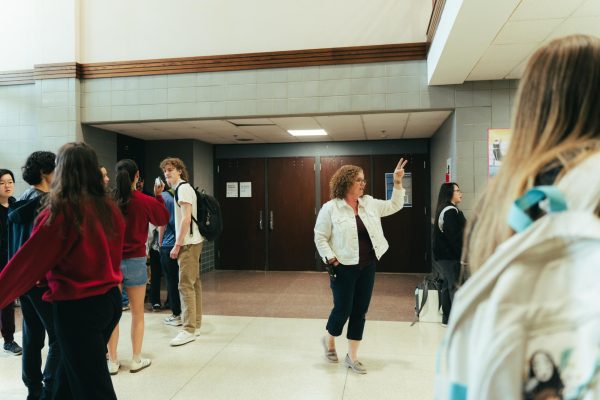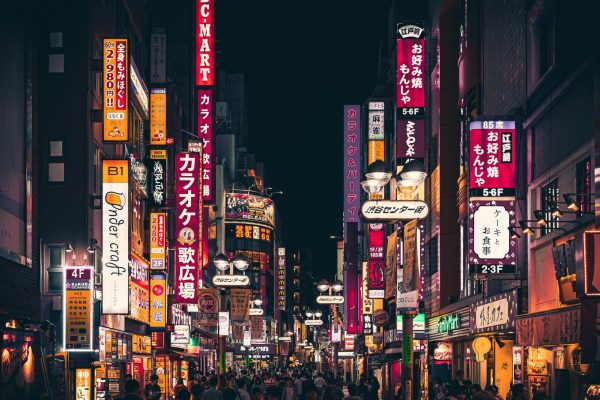Modern Trail of Tears: Trail of Oil
You might think the pipeline construction that has already gone through one Native American reservation Standing Rock Sioux Tribe and five different states on the West Coast doesn’t matter to our mid-western Bloomington community.
But it does.
North senior Ana Stahlman, part Native American from the Tuscarora tribe, speaks about the pipeline incident with passion and remorse.
“It’s everyone’s fault, not just the oil company,” Stahlman said. “We make oil such a necessity, when it’s not. The whole water situation is terrible, it’s wrong. We need oil for our water, to heat it up, we need it to drive to different places. This is our fault. We need to be better people.”
When speaking of the protests that were going on at the reservation, she mentioned her friend Quinna Hamby, who is the Tuscarora princess. Hamby is politically involved, along with her parents, and she gives on-site information regarding the meetings between the tribes and the oil company, as well as the small riots. Stahlman said that Hamby witnessed prayers being said and sage being burned for spiritual reasons.
Tuscarora natives hoped that all of this would overturn the oil company’s decision.
Stahlman took a moment to look at the situation from a different perspective: “We need oil and they need money, so it’s a win-win situation.We use it so much. So I felt like, dang that’s so true! The fact that we were coming together, that’s over 300 tribes [that] were coming together as a whole. We weren’t separate tribes, we were one.”
Her voice was nervous as she went into more detail. She became slightly emotional and her voice cracked. She held back her tears.
“Obviously, this is going to affect the people,” Stahlman said. “If they were going to our reservation, and digging up our land that they already took — that’s all we have as our home. What else can you really take from us, you know? In the reservation in New York and the one in Idaho, we have crappy water as it is. It smelled like sewer water. Because of this, we have to drive 15 minutes away to go to the nearest supermarket and get jugs of water. That’s our water. We shower, we brush our teeth, we cook with that water. That’s what we live in. I could only imagine someone digging in, like, what else can you do? What else can you take away from me?”
Stahlman understood the consequences of having the pipelines go through the reservation told not one but both sides of the situation in two perspectives.
“We need oil and this is the world we live in, but really thinking about it and looking at it, we don’t need it,” Stahlman said. She began to cry a little as she spoke. “We don’t need that stuff in our life. We are lazy people. Mother Earth didn’t want this. It was never like this before, and now it’s changed to how it needs to be like that. It’s disappointing to look at it and it’s probably getting worse, it’s so sad.”
North teacher Peyton Balasko, who just moved to Bloomington, although not as affected by it as Stahlman, is well aware of the actions surrounding the pipeline incident.
“I don’t think it really affects me on a personal level,” Balasko said. “[But] there needs to be more consideration taken to the thoughts. The beliefs of the Native Americans based off of how we really treat them the past 300 years. I think we should be more respectful of their beliefs. If they think that that area is sacred, then there should not be construction and the area should be preserved.”
However, Balasko mentioned that he wouldn’t have learned about it had Native Americans not brought attention to it.
“I don’t pay attention when pipelines are being built, probably should but if it’s not going through my back yard then, you know I don’t pay any attention,” Balasko said.
Many Americans are still not aware of how much the pipeline has impacted people. But the battle between the protestors and the oil company will not end anytime soon. Since this last Monday, building of the pipeline has resumed. As a result, there have been reports of protestors injured and many arrested.
The future of the tribes who live in these communities remain uncertain. In the meantime, they are determined to do what they can to preserve their land and the history behind it.
“Mother Earth doesn’t want this and this is not the way to live life,” Stahlman said. “We need to be connected with the Earth and take this situation seriously.”






